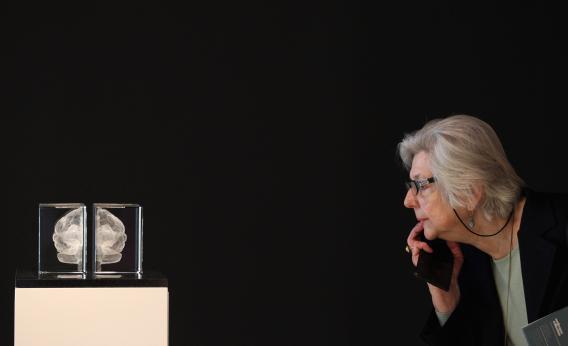In the New York Times Magazine this weekend, Jennifer Kahn took a hard look at a mental disorder so disturbing that dealing with it honestly is incredibly rare: psychopathy. Many people probably aren’t even aware that “psychopath” isn’t just a term for someone with a crappy personality, but is a disorder that’s believed to be biological in origin, where the sufferer just basically can’t feel empathy. Kahn focused on the parents of fledgling psychopaths, parents whose situation should cause extreme sympathy, since attempts to treat this condition have largely been fruitless.
In the piece, Kahn compares psychopathy to autism, not because the two disorders are similar in their manifestation, but because psychologists believe they’re both neurological disorders, i.e. based in the brain and really something that the sufferer can’t help. This caused me to note on Twitter that even though the conditions are similar in this way, autism garners sympathy and psychopathy doesn’t. In fact, most social discourse around psychopathy is still demonizing and utterly unsympathetic to the parents, who are often blamed for the condition. It struck me as an interesting logic hole in our cultural narrative around mental illness, since the usual assumption is that sympathy for mental illness is directly correlated with inability to control your problems. Psychopaths give lie to that narrative. Turns out that we sympathize more with austistic people than psychopaths because we feel empathy for the struggles of autism, but psychopaths just make us angry. There’s no logic or rationality in play, just pure emotional reasoning, and the parents of psychopaths are the victims.
Of course, you couldn’t design a better system for sniffing out irrationalities in our cultural narratives than Twitter. The size of a logic hole is directly proportionaly to the amount of umbrage you’ll get for pointing it out, as I quickly discovered. Parents of autistic children were upset with me for daring to compare their plight to that of psychopaths, which only makes sense if you see those others as beneath you. Others cast around looking for a “good” reason that we care about autistics but not psychopaths. Others attached themselves to irrelevant details; that the exact brain chemistry is different in psychopaths and autistics should be obvious, but to the larger point, it’s irrelevant. I was just interested in the fact that there’s no relationship between how much we care about those with a mental disorder and how much those with it can help having it. Turns out that a lot of people are willing to expend a lot of effort at defending the greater levels of sympathy we have for autistics and their parents over psychopaths and their parents, even though both groups of people are in similar situations of facing a biological disorder that manifests as a mental illness for which no real cure is available. That there’s better treatment options for autism only makes this cultural calculation more chilling; for parents of psychopaths, there isn’t much hope at all.
The whole situation is deeply depressing, but ever the optimist, I’m going to pull out a silver lining. Even though the initial reaction to Kahn’s piece is a whole bunch of predictable shunning and demonizing of psychopaths, aided by claims that people with other biological mental illnesses are somehow more deserving, maybe it will open up a cultural conversation about how our society still has a long way to go when it comes to mental illness. We still tend to rank the sufferers according to how they make us feel, and end up shunning people who need our sympathy because they make us incredibly uncomfortable. Exposing the logic hole is hopefully the first step towards fixing it.
